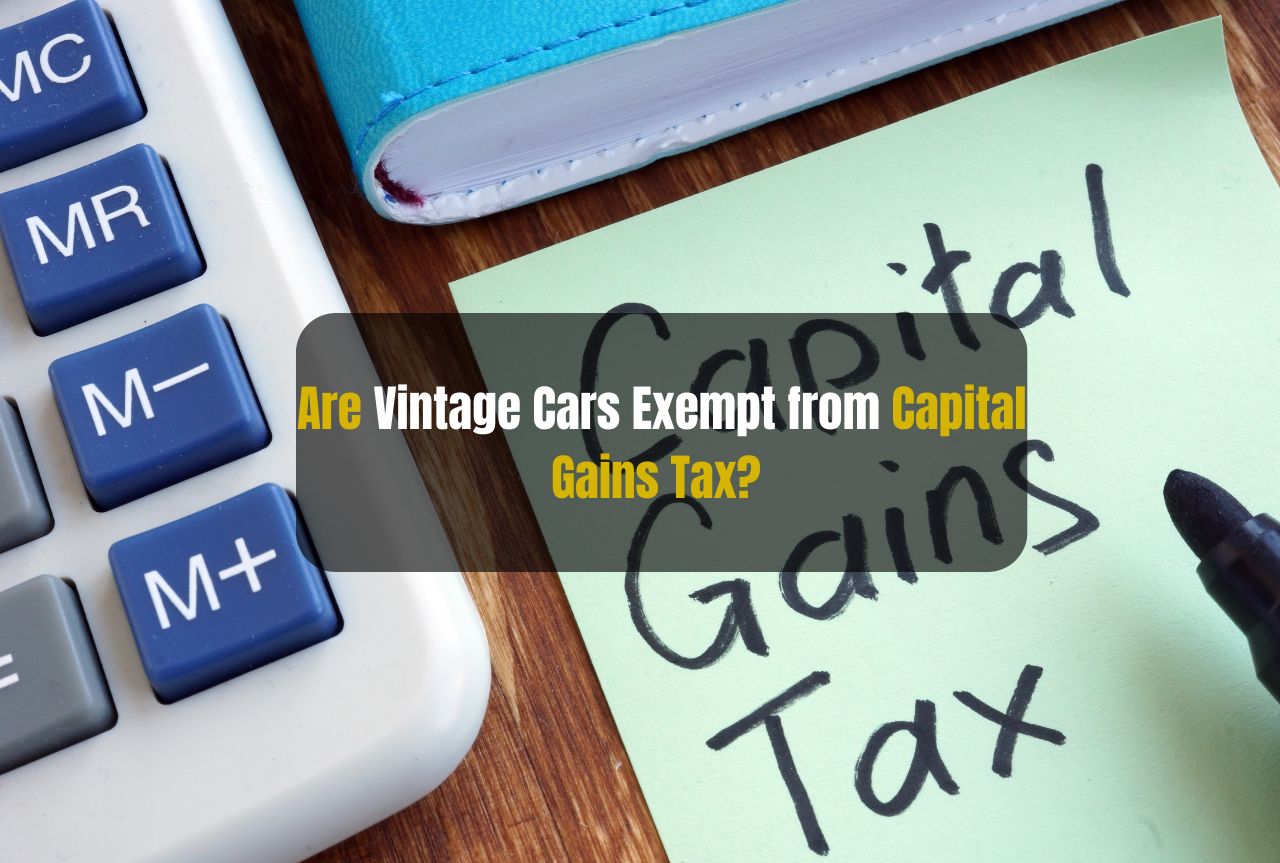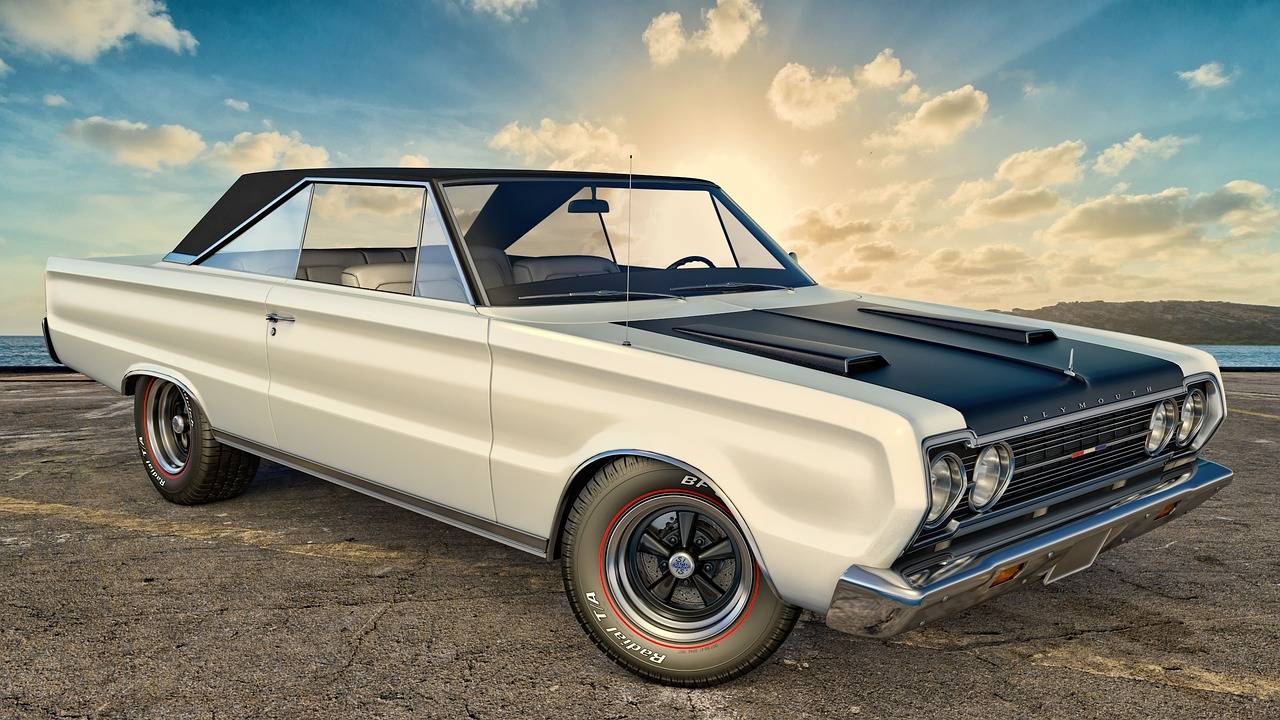Vintage cars are popular investment objects for enthusiasts and collectors. They are drawn to them not only for their aesthetic and historical value but also because they are usually appreciated over the years.
However, with these perks comes a hefty dose of tax that most collectors might need to be made aware of (especially on their pockets). One of our most pertinent questions would be whether vintage cars pay any capital gains tax.
This blog post attempts to explain the topic in depth by providing an overview of the basics of capital gains tax, whether old cars can mitigate or incur the taxation, what the exact circumstances entail, and whether there are any possible exemptions or liabilities.
What Is Capital Gains Tax?
“Capital gains tax” is the tax we pay on the profit from the sale of an asset, such as stock, real property, and collectibles. The tax is computed on the difference between what you paid for the asset and what you get when you sell it.
Short-term profits within a year are taxed at regular income-tax rates, and long-term returns on transactions more than a year old are taxed at a lower rate.
Short-term capital gains are those held for less than one year and are taxed at the ordinary rate.
Capital gains held for more than one year are treated as long-term capital gains, and their tax rate is significantly discounted.
In the US, rates of long-term capital gains tax are progressive, i.e., percentage-wise income-dependent, with levels of 0 percent, 15 percent, or 20 percent of the income generated.
How Capital Gains Tax Apply to Vintage Cars?
When they sell at a profit, the full amount is subject to capital gains taxes since IRS rules classify vintage cars as collectibles. US law taxes collectibles at a maximum long-term capital gains rate of 28 percent, significantly higher than the standard maximum rates for long-term capital gains on other investments.
Key Factors Determining Tax Liability
Several factors can affect whether or not you’ll have to pay capital gains tax when selling a collector car:
- Length of Ownership: If you held the car for longer than a year, it is taxed at the long-term capital gains rate. If it is less than a year, then it is treated under short-term rates.
- Original Purchase Price: The amount you paid for the car when you first bought it (the cost basis) gets subtracted from the selling price to arrive at the gain.
- Selling Price: The final amount you receive from selling the car.
Costs of Maintenance and Improvement If you spend money to maintain or improve the car, you can subtract these costs from the gain.
Exemptions and Exceptions
While vintage cars, in general, are not exempt from capital gains tax, there are situations where tax liability can be mitigated or eliminated:
For personal use:
if the car is acquired with a ‘hobby’ mindset (rather than as an investment), the IRS could treat it as a personal asset, which could trigger more generous treatment.
Gift:
If you have a vintage car as you gave a vintage car as a gift, the recipient’s cost basis is established using the original owner’s purchase price. If the recipient then sells the car, the capital gain is figured using that basis.
Estate planning:
If an appreciating asset like a vintage car is inherited, its cost basis is ‘stepped up’ so it has the same value as the price the government reassessed the car at the time of the original owner’s death. Thus, there’s no capital gains tax when the inheritor later sells it.
Strategies to Minimize Capital Gains Tax on Vintage Cars
Vintage cars are not absolutely exempt from capital gains tax. Collectors can use a couple of strategies to mitigate their tax liabilities.
Holding Period
The easiest thing to do is to hang on for more than a year to qualify for the lowest long-term capital gains tax rates. Since collectibles are taxed at a maximum rate of 28 percent, you will also be able to skate past the higher rates for short‑term capital gains.
Utilizing Deductions
Maintain accurate records of every expenditure related to the vintage car: you can deduct the cost of repair and maintenance and even storage space as a tally against the capital gain paid on its sale price.
Charitable Donations
You can deduct the fair market value of a vintage car that you give to a recognized charity, and that deduction will help offset other taxable income.
Like-Kind Exchanges
While recent manipulations of the tax code have all but eliminated like-kind exchanges in almost everything but real estate (get a tax specialist to educate yourself: you might be able to do it with vintage cars under certain conditions), one elegant ruse remains.
Estate Planning
And holding onto it until death will allow that car to serve its ultimate vintage role – one that is not only metaphorical but also tax-sensible, insofar as heirs can receive a step-up in basis, that is, a new valuation at the time of death that might altogether or substantially mitigate capital gains tax due on any subsequent sale.
Reporting Requirements and Compliance
A report of the sale of an antique automobile must be filed with the IRS for tax purposes. Here is how to do it.
Calculating Gain or Loss
Determine the cost basis (that is, the original purchase price of your item plus any restoration costs) and subtract that number from the selling price to determine the gain or loss.
Filing Tax Forms
For this reason, you should report your gain or loss on IRS 1040 Schedule D. If the car was used for business, additional forms, such as Form 4797, may be required.
Keeping Records
Keep detailed records of your purchases, sales, and expenses for use in case of an IRS audit.
International Considerations
This is particularly true if you don’t live in the US – or if you’ve bought and sold abroad. Suppose you’re based in any other country or dealing internationally. In that case, you’ll need to look into the rules on capital gains taxes in the relevant jurisdictions because many countries have regulations comparable to those in the US, but the rates and exemptions vary.
Double Taxation Treaties
It is also possible that the resident in that country enjoys a tax treaty with the US, in which case taxes withheld at source in the US will be credited against US taxes that might be owed.
Local Tax Laws
Consult tax legislation for your location to learn how capital gains tax applies to vintage cars. In some cases, vintage cars may be more graciously taxed.
In Summary
Although owners remain vulnerable to capital gains tax, steps such as keeping the records straight, holding on for at least a year, and examining charitable donations and estate planning can help them minimize their tax burden. Consult a tax professional to learn about the latest regulations and make your best—and most fun—decision about your vintage cars.








Leave a Comment